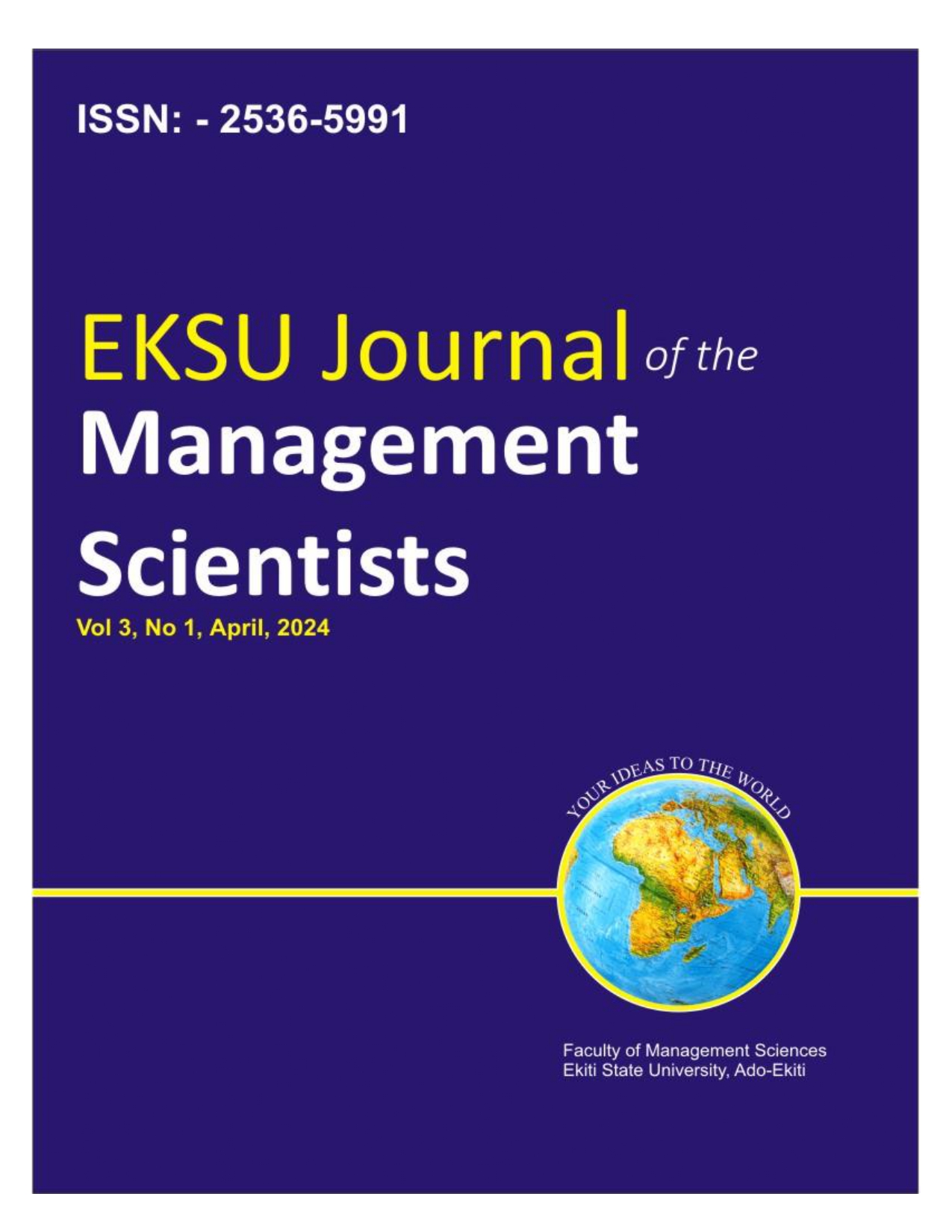EKSU Journal of the Management Scientists
Financial Literacy and Economic Development in Nigeria
Abstract
The study was conducted to examine the effect of financial literacy and economic development in Nigeria. The study is hinged on the human capital theory and life cycle theory. The study employed ex post facto research design. Data was obtained from Central Bank of Nigeria, Nigerian bureau of statistics and the World Bank. The collected data were analyzed using the error correction model to determine the long and short run relationship between the variables respectively. Findings show that access to financial services does not impact significantly on economic development in Nigeria. It was also found that there is a positive and significant relationship between savings and economic development in Nigeria. Moreover, results further revealed that there exists a positive and significant relationship between financial literacy and economic development in Nigeria. Lastly, results showed that investment does not have a significant impact on economic development in Nigeria. It was recommended that the government should foster the adoption and usage of digital drive for financial services, such as online banking, mobile wallets, and e-payment platforms. Collaboration between financial institutions, telecommunications companies, and fintech firms to develop accessible and secure digital solutions targeted to specific needs of the Nigerian populace should be encouraged. The study also recommended that there should be a streamline of the account opening process, reducing documentation requirements, and implementing risk-based KYC (Know Your Customer) measures. This will make it easier for individuals, especially those in remote areas, to open bank accounts and access formal financial services.


